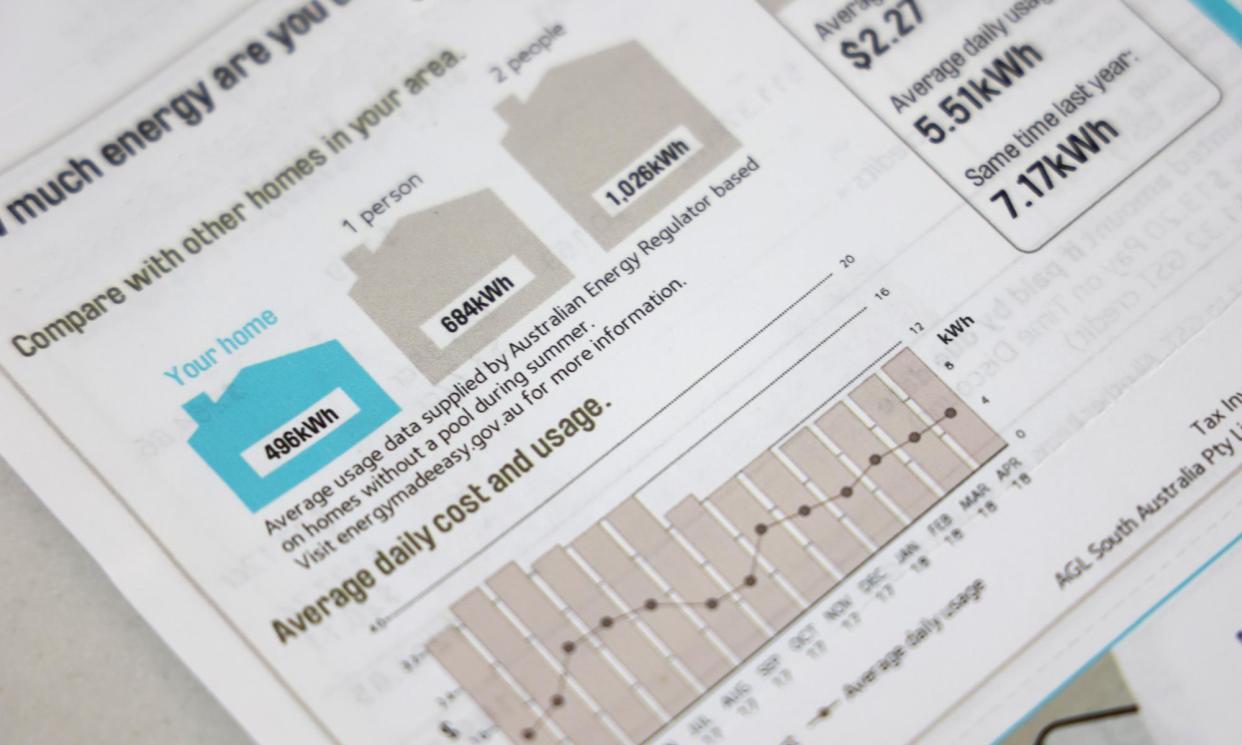Peter Dutton’s plan to ditch 2030 emissions target would drive up power bills, Penny Wong says

Penny Wong has warned that ditching 2030 greenhouse gas reduction targets would lead to higher electricity prices as Peter Dutton foreshadowed an election campaign fought on energy policy.
The opposition leader told Sky News on Sunday that energy would be a “big difference between the two parties as we head into the next election”, a week after backing away from Australia’s legislated 2030 emissions target of a 43% cut compared with 2005 levels.
“A renewables-only approach that the government has adopted is going to continue to drive up power prices,” he said, claiming that rising grocery prices were caused by a rise in power bills.
“So we have to make sure we’ve got a realistic system. Energy is the economy,” he said, saying Labor did not “take into account gas and nuclear”.
Speaking soon afterwards on ABC’s Insiders, Wong said it was “mindbogglingly absurd for [Dutton] to suggest that more uncertainty will do anything other than increase costs”.
“His policy is a policy that will lead to higher electricity bills for Australians,” the foreign affairs minister said.
“During their tenure of government, when they had in excess of 20 policies, what did that uncertainty mean? Twenty-four coal stations announced closure.
“You have a situation where the market looks at this and says, ‘We have a lot of uncertainty so we’re not going to invest.’ Meanwhile the old technology is exiting the market. You’re reducing supply, what does that mean, you’re increasing electricity prices.”
Dutton has said he remains committed to the Paris agreement and 2050 net-zero plans. Asked about the 2030 target, he said the opposition would “have a look at all of that information and if there are settings we need to change then we’ll change them”.
Erwin Jackson, the policy director with the Investor Group on Climate Change and an observer at international climate negotiations since the 1990s, has said the Paris agreement was “absolutely clear” that countries could not backslide on emissions targets.
“It’s a core fundamental principle of the Paris agreement,” he said. “To make this position operational they would have to withdraw, which would leave us isolated in the international community.
“It would shatter confidence in our foreign policy and significantly undermine the ability for Australia to attract the investment it needs to get to net zero.
Dutton told Sky the Coalition supported renewable energy going into the system, but continues to push an energy policy that would be more heavily reliant on gas and the eventual construction of nuclear power generators.
“Interim targets are fine when they are realistic,” he said on Sunday, reiterating his view that cutting emissions did not need to be a “linear progression”.
“I would act in our country’s best interests,” he said. “We’ve got international obligations, we don’t propose to leave the Paris agreement at all and we’re fully signed up to net zero by 2050, but if you think it’s a linear progression they will cripple the economy.”

 Yahoo News
Yahoo News 
